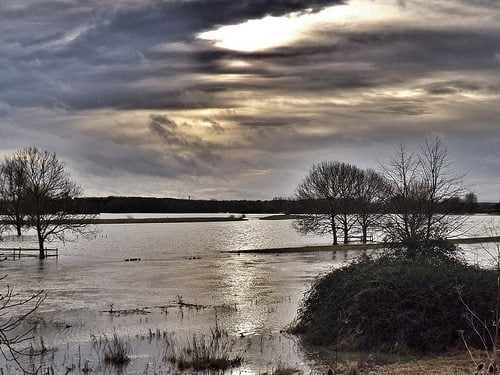

Economy
Study: cost of climate change to become ‘serious challenge’ by 2040
Economists have said that the cost of climate change could increase significantly over the coming decades and become a “serious challenge” for businesses by 2040. They have urged businesses to consider the true financial costs of climate change in order to prepare for the future.
The study was led by the Global Climate Adaption Partnership with Daniel Black & Associates and researchers at the University of Manchester and the University of Bath. The study mapped key risk factors from climate change for a housing and care and support services provider.
Researchers used economic forecasting and online spatial mapping techniques to pinpoint costs if action to improve climate resilience was not taken. The economists considered the effects of extreme weather, from potential damage to business property through flooding and risks associated with heatwaves.
The findings suggested that the cost of extreme weather events could increase by a factor of ten with climate change over the next 35 years. The researchers added that making targeted investments now could make significant financial savings in the future.
While the report was produced for Aster Group, the researchers stress that the findings highlight the need to raise awareness and action amongst all organisations.
Lead economist on the project from the University of Bath, Dr Alistair Hunt said, “Our study highlighted key climate change risk factors over the next 30-40 years for one specific organisation, but our findings and the underlying methodology used are applicable across the sector and for the wider business community.
“From current projections we know that climate change will pose a serious challenge by 2040 for many organisations. Putting a true economic cost on these risks can act as a catalyst for taking action today in order to help organisations better prepare for the future.”
Adam Hackett, Aster Group head of sustainability and safety, added, “The study has helped us understand the potential impact on our properties as weather and climatic conditions in this country evolve.
“It’s vital that we’re able to plan for those future change so we can ensure we’re in the best possible position to respond to and challenges we may face.”
Photo: Broo_am (Andy B) via Flickr
Further reading:
‘Stern 2.0’ review to look at costs and benefits of tackling climate change
Funding gap in climate adaption, says UN report
Study: rich nations could affordably give $2tn to tackle climate change in developing countries

































